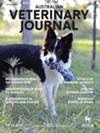Factors related to resilience for mid- to late-career-stage veterinarians: a qualitative study
Abstract
Background
This study aimed to explore how resilience in mid- to late-career stage veterinarians in Australia is shaped by interactions between job demands, personal and contextual resources, strategies and outcomes.
Methods
Semistructured interviews with 17 mid- to late-career stage veterinarians were conducted with questions modelled on prior research investigating veterinarians' experiences, teacher well-being and resilience. The Job Demands-Resources model guided thematic analysis.
Results
Mid- to late-career stage veterinarians described how resilience is shaped by interactions between (1) demands of the job, (2) resources available, (3) strategies used and (4) resilience outcomes. Job demands and job resources categories were sub-divided into four and seven themes respectively according to whether characteristics were based on personal or contextual factors. Strategies were grouped into seven themes representing intentional ways that veterinarians made effective use of resources. Three themes in the Outcomes category represented positive outcomes that were enabled through dynamic interaction between demands, resources and strategies undertaken to realise outcomes.
Limitations
This study did not explore relationships between perceptions of resilience and veterinary work type, practice location, age or gender. Interviews were conducted before the global COVID-19 pandemic, and results do not reflect any associated psychological impacts from that event.
Conclusion
Resilience in mid- to late-career veterinarians is a dynamic process driven by the interplay of demands, resources, intentional actions and outcomes. Although personal resources can be developed over time, job demands are largely contextual. Effective management practices can mitigate challenges and foster resilience.


 求助内容:
求助内容: 应助结果提醒方式:
应助结果提醒方式:


